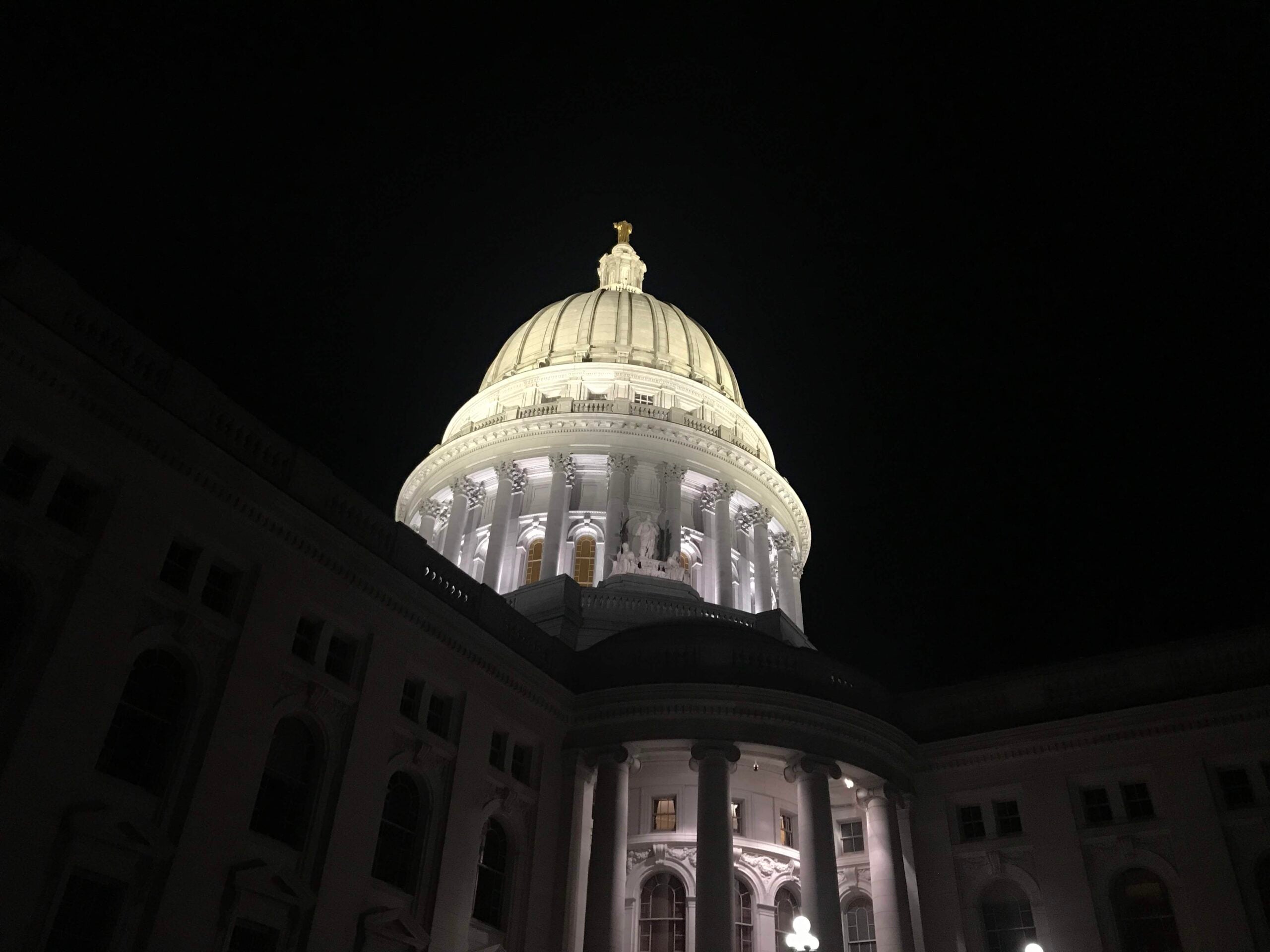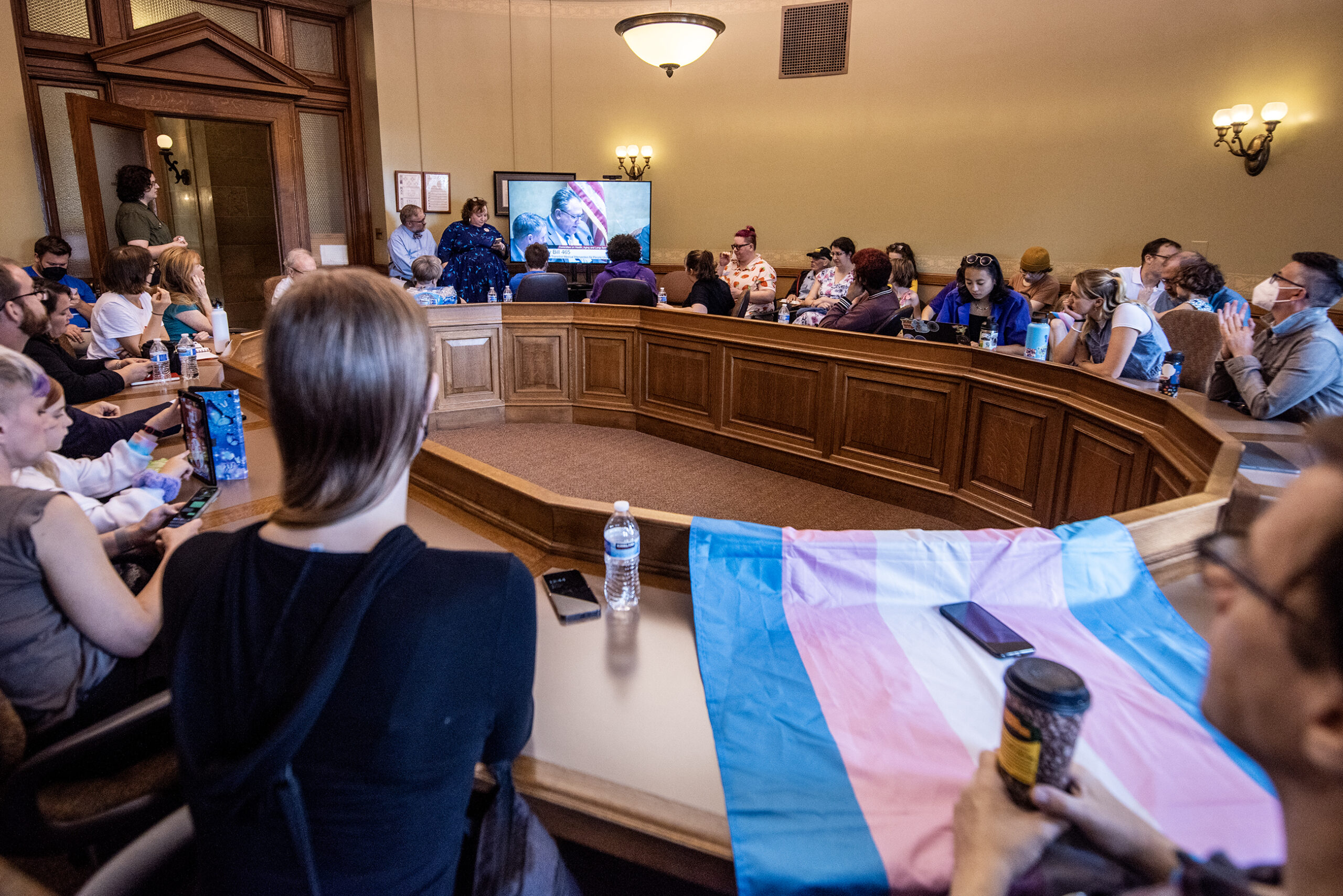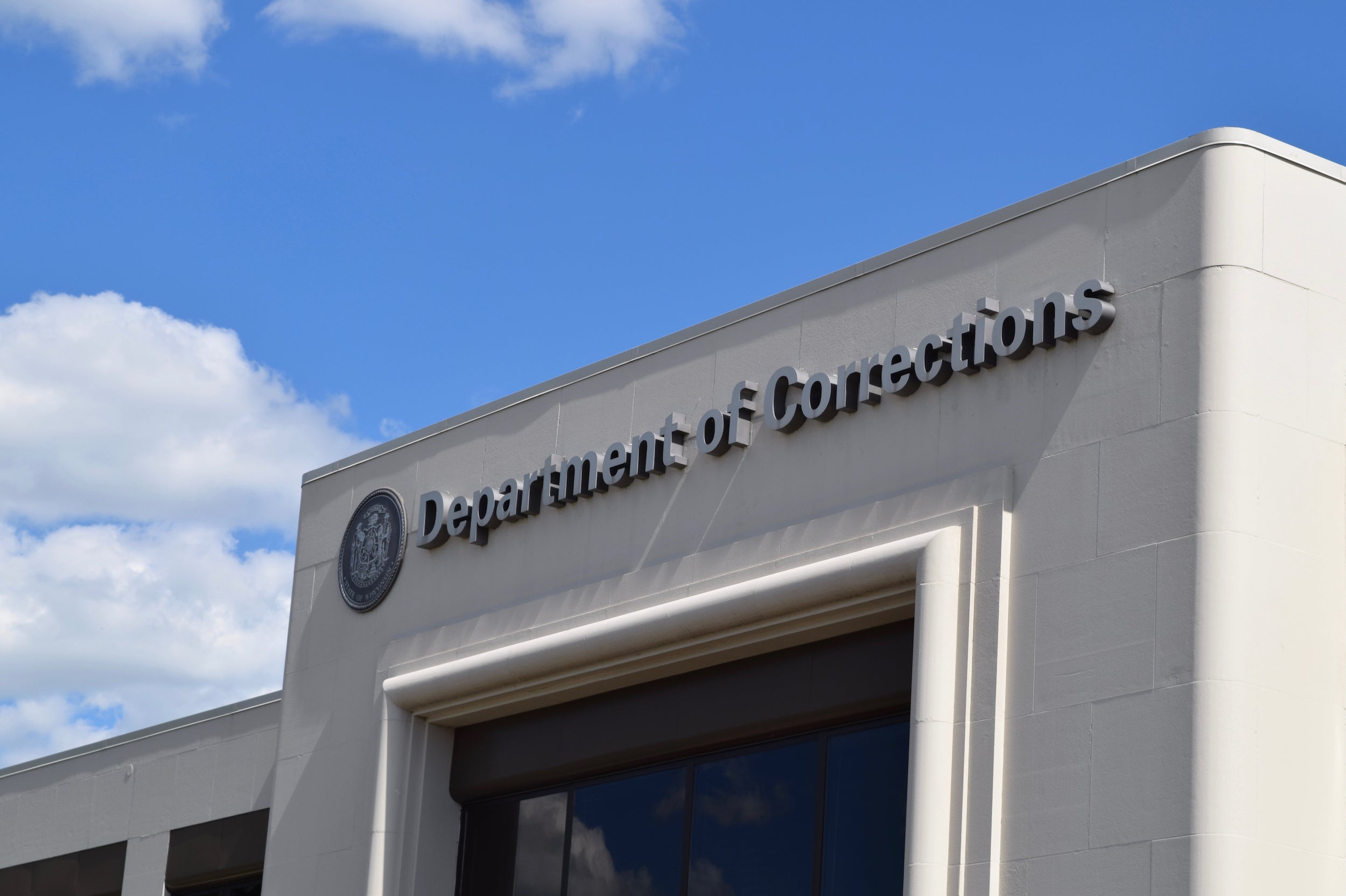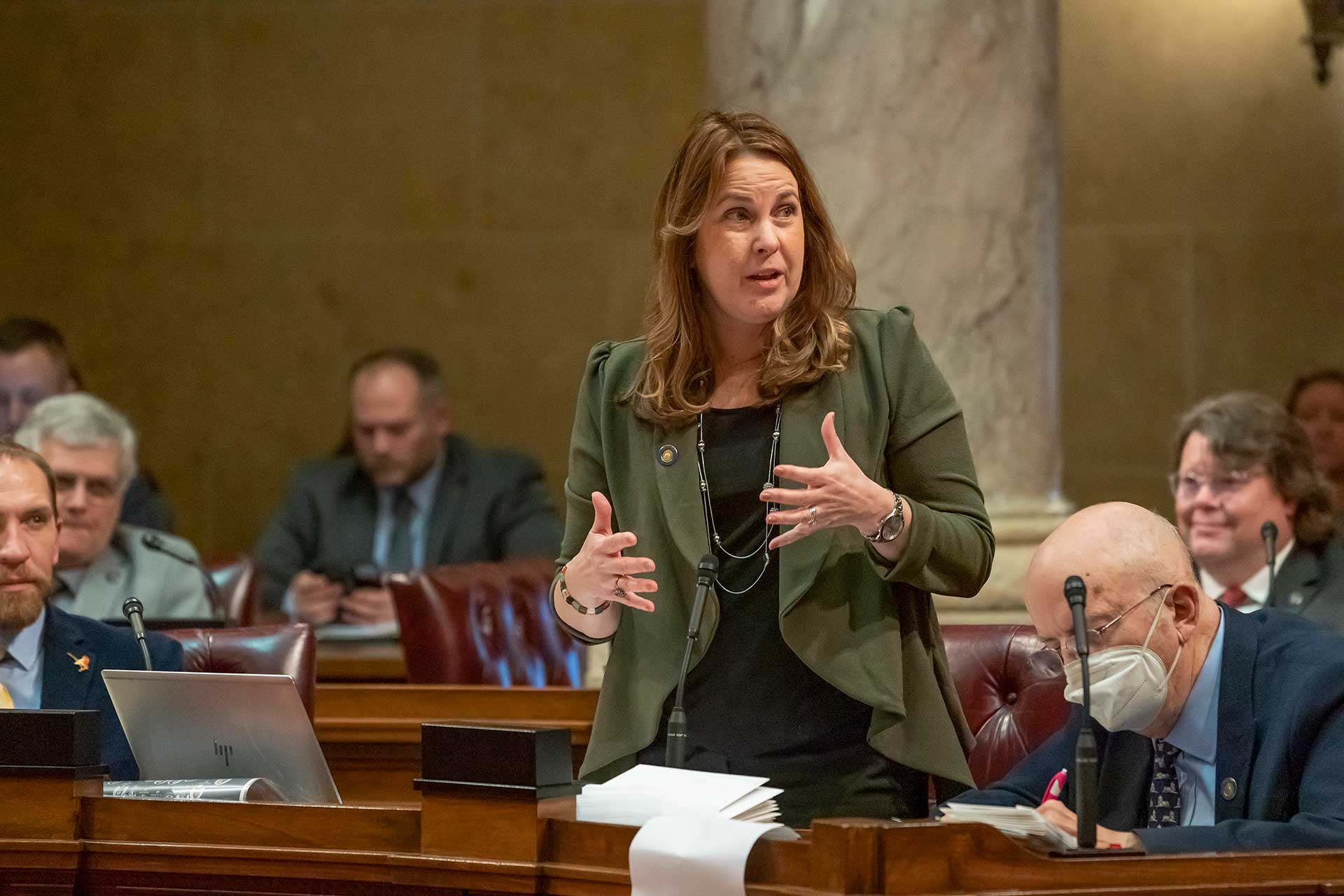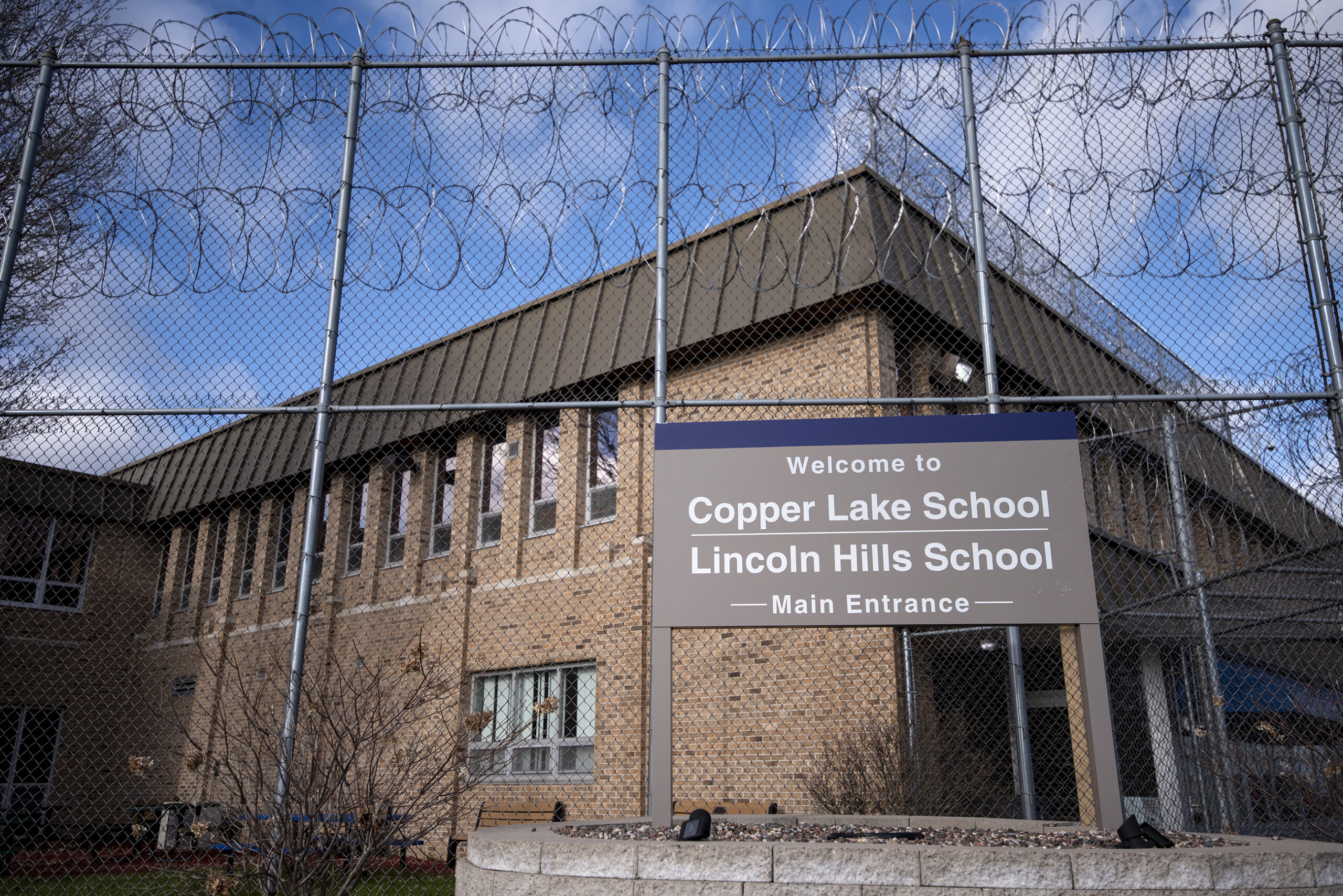Wisconsin senators held a marathon session Tuesday, passing measures that would fund a replacement for a troubled youth prison, restrict government safety net programs, limit the ability of the University of Wisconsin System to teach about diversity and race, and call for a convention to amend the U.S. Constitution.
During one of their final meetings of the year, Republicans also passed measures that would change Wisconsin’s cash bail system and increase mandatory sentences for some crimes, while at the same time advancing a handful of bills aimed at police reform. They also passed more than a dozen measures that would change Wisconsin’s election laws.
Here’s a rundown of Tuesday’s Senate action.
Stay informed on the latest news
Sign up for WPR’s email newsletter.
Lincoln Hills
Senators voted 33-0 for a bill that would fund a new juvenile corrections facility to replace the troubled Lincoln Hills School for Boys.
But despite the broad bipartisan support, Assembly Speaker Robin Vos, R-Rochester, said it was unlikely to pass his chamber, suggesting it left too many unanswered questions.
Lawmakers voted unanimously to close the Lincoln Hills youth prison in 2018, but they’ve yet to fund a replacement for the facility in Irma. The plan that passed the Senate on Tuesday would authorize roughly $42 million in borrowing to pay for a new juvenile prison in Milwaukee County.
Asked about the plan, Vos told reporters Tuesday that Assembly Republicans would take a look at the plan, but he blamed Gov. Tony Evers’ administration for not doing more to support it.
“It’s very challenging for us to just say we’re going to pass a bill with a bunch of money without a site to have it actually go to,” Vos said.
One of the measure’s Senate sponsors, Sen. Mary Felzkowski, R-Irma, urged Vos to reconsider, writing on Twitter that Lincoln Hills, which is in her district, had become so unsafe that staff were afraid to walk its corridors alone.
The Wisconsin State Senate just UNANIMOUSLY voted to support my bill to fund a new Type 1 Juvenile Correctional Facility in Milwaukee County. This is the crucial next step Wisconsin needs to take to close the troubled Lincoln Hills juvenile school, which is in my district.
— Sen. Mary Felzkowski (@MaryFelzkowski) February 22, 2022
Restrictions on teaching diversity, anti-racism at the UW System
GOP senators also passed measures that would limit what universities in the UW System can teach when it comes to race and give students the ability to opt out of diversity instruction.
Under one of the bills, if a system institution requires a course in diversity or ethnic studies, it could be satisfied by a student’s successful completion of a course in the U.S. Constitution, including the Bill of Rights.
Under another, the UW System and Wisconsin Technical College System would be banned from “allowing instructors to teach race or sex stereotyping in any course or as part of any curriculum.” They’d also be banned from teaching “an individual, by virtue of the individual’s race or sex, is inherently racist, sexist, or oppressive, whether consciously or unconsciously” or that “an individual, by virtue of the individual’s race or sex, bears responsibility for acts committed in the past by other individuals of the same race or sex.”
Democrats said the plan would prevent the systems from teaching about race and gender inequality that exists today.
“This bill seeks to silence the haunting questions that force us to turn a blind eye to not only our past, but I would argue … even our present,” said Sen. Lena Taylor, D-Milwaukee, who is Black.
Franklin Sen. Julian Bradley, the Senate’s only Black Republican, disputed that, saying the plan would still allow the teaching of history.
“This bill is not a racist bill,” Bradley said. “It is offensive as someone who has been on the receiving end of racism to see how liberally that term is thrown around.”
Senators also passed a ban on sex and race stereotyping in training provided to state and local governments.
All three bills involving race now head to the governor’s desk.
Senators also passed a resolution by Bradley honoring Black History Month that did not mention specific people. Taylor and other Democrats wanted the resolution to honor specific Black people, including Sidney Poitier and Colin Kaepernick. Their amendment was rejected.
Cuts to the government safety net
Republicans also sent several plans to the governor’s desk that would restrict programs like Medicaid and unemployment insurance in Wisconsin.
The proposals already passed the state Assembly, meaning they head next to Evers’ desk, who is likely to veto the plans.
Article V convention for term limits
Republican senators also endorsed an Article V convention of the U.S. Constitution to propose an amendment establishing term limits for members of the U.S. House and U.S. Senate.
While GOP backers of the plan have said it would be restricted to discussing term limits, critics of the plan worry it could lead to opening up the Constitution to other unintended changes.
Cash bail
Senators also approved a plan that amends the constitution to let Wisconsin judges set higher cash bail amounts.
The vote comes after six people died and dozens others were injured in the Waukesha Christmas Parade tragedy, which shed new light on the current cash bail system. The suspect in that case, Darrell Brooks, posted cash bail on unrelated charges just days ahead before the parade.
Critics of the plan say it will exacerbate a system that winds up keeping people in jail when they can’t afford to pay.
The proposal already passed the Assembly. If an identical plan passes the Legislature in the session that begins next year, it would go to voters in a statewide election.
‘Tough on crime,’ police reform
Also Tuesday, senators passed plans that would:
- Increase criminal penalties when multiple thefts are committed by five or more people at the same time and in the same place.
- Impose a mandatory minimum sentence of six months for a third retail theft conviction that occurs within 10 years of the previous two convictions.
- Set up a grant program, funded by federal coronavirus relief funds, to give state Department of Corrections officers $2 raises this year and $5 raises next year.
- Use that same federal money to start two part-time police academy programs at Wisconsin technical colleges.
Evers has vetoed previous bills on federal coronavirus relief funds, arguing if Republicans want to prioritize these programs, they should use state funding.
Senators also gave final approval to bills that would:
- Report the use of no-knock entries when executing a search warrant.
- Create a grant program for police to purchase body cameras.
Those proposals now head to Evers’ desk.
Wisconsin Public Radio, © Copyright 2025, Board of Regents of the University of Wisconsin System and Wisconsin Educational Communications Board.
